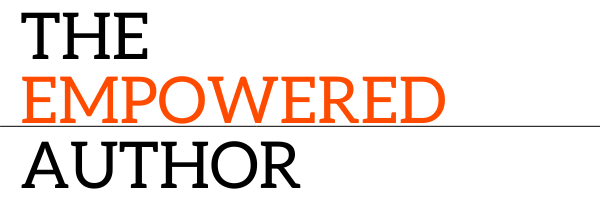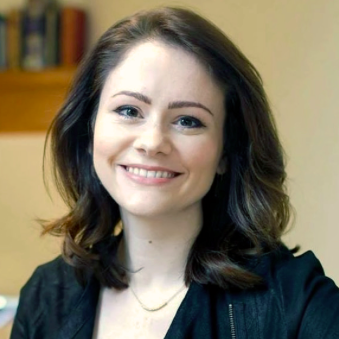The Independent Perspective, by LJ Ross
LJ Ross
On New Year’s Eve 2014, I was on Lindisfarne — a remote, atmospheric tidal island, off the Northumbrian coastline — cursing myself for not knowing the difference between civil and nautical sunrise. It turns out, that difference means getting up and waiting around in the freezing darkness for over an hour to catch the perfect shot of Lindisfarne Castle. That photograph would later become the cover of an international bestselling book which would change my life…but, I didn’t know that then. Luckily for me, I was born in Northumberland, and was therefore hardy enough to withstand the bracing winds rolling in from the North Sea while my husband and I watched the dawn rise.
I’d written a novel, you see. A flight of fancy with Holy Island as its centrepiece, so it seemed fitting the island should feature on the cover. I suppose I should have approached a professional designer but, back then, crime thrillers and mysteries were covered in muted shades — few of which stood out on the Kindle Store’s home page — and I planned to take a different approach, using programs like PhotoShop to layer a cover that was bold, bright, and used dark, silhouetted photographic backdrops to feature the books in my new series. Fast forward five years, and you’d be hard pressed to find a mystery novel without a bright-sky backdrop…
But, back to 2014. From the beginning, my approach to publishing has been non-conformist. I come from a legal background, having been a regulatory barrister before deciding life was too short, and in that world things move quickly. The level of responsibility I’d become accustomed to served me well, because it meant that I was unafraid of self-employment, of managing people or a business. Stress is a constant, low level buzz in my life, but my system is familiar with its demands. Consequently, when I had sight of my first ‘traditional’ publishing deal and compared it, unfavourably, with the more author-friendly terms of service on the Kindle Direct Publishing platform, the prospect of becoming an independent author in charge of my own destiny was both exciting and well suited to my personality. In some quarters, it’s been popular to speak of self-publishing as the ‘fall back’ or the ‘second choice’, the realm of those who were unable to find a publishing deal. Not so, in my case. To my objective eye, coming to the industry without bias or preconceptions, I thought it was a no-brainer and was baffled as to why more authors wouldn’t give it a go themselves. The answer is, of course, more nuanced; writing is an intensely personal act and people become very protective of what they create, because it is an extension of themselves. Not everybody has a sufficient well of confidence to try to go it alone, and, frankly, some people need the validation of those already in the industry. My approach has always been, ‘live and let live’ — it isn’t for me to pronounce what is ‘right’ or ‘wrong’ for another author, I can only recount what has worked for me along the whirlwind journey I’ve taken.
Consequently, I don’t much like giving advice, but, if I’m asked, the first and most important piece of advice I have for my fellow authors is to keep a clear head. This is easier said than done, because there’s an awful lot of traffic, out there. There is a lot of information and advice — some well-meaning, and some spin — lots of courses on publishing, marketing, advertising, cover design and creative writing, all of which require a high level of discernment. Learn to separate your emotional ties to the story you have created to be able to see the wood, for the trees. The publishing world is a busy one, requiring clear-sightedness and a thick skin.
And, my, it can be a cutthroat world. Having worked in high finance, I didn’t think anything could top that for snarky comments or backhanded insults, but I was naïve. Snobbery, envy and commercial interests abound — it’s not all quill pens and creative personalities. Authors who don’t sell an expected amount can be cast aside like yesterday’s news in the traditional world, whilst authors who remain independent can become overly obsessed with ‘process’ and ‘visibility’. Try not to lose yourself in the mire, because nobody ever turns to writing to find fame and fortune — it’s just a bonus if you do.
My second piece of advice would be to remain focused on the product. Your story is the single most important thing that will sell your book and — perhaps even more importantly — future books. There have been many flashes in the pan, but sustainability depends on readers forming a real connection with your style of writing, the stories you weave, the worlds you create. Covers are important, as is sales copy, editing, proofreading, and it’s certainly smart to think about marketing and advertising, as well as an author platform (social media, website etc.) but in taking care of the periphery, don’t forget the core.
My third piece of advice is to ask yourself, honestly, what you want to achieve. If the answer is industry accolades or a pat on the back from somebody wearing a tweed blazer and a cravat, then you’ll have more chance of success if you take the traditional publishing route. If you’re genuinely unconcerned about winning prizes but rather like the esteem of thousands of readers, the possibility of achieving a bestseller tag that relies on real-time sales or downloads of your books, and being able to pay your household bills — or, in my case, to begin thinking about legacy work and setting up charitable foundations —I’ve found independent publishing eminently satisfactory in that regard. If it sounds like I’m biased, it’s because I tend to speak as I find, but sometimes, a combination of the two can work very well; in my case, the audiobook contracts I have with Audible and WF Howes operate along more traditional lines, as do my foreign translations. However, I prefer to retain the rights to my e-books and print books for English language territories, and I’ve recently set up my own imprint, Dark Skies Publishing, to oversee wider print distribution for the high street and independent bookstore market (there’s that non-conformism rearing its head again).
Whichever approach you take to publishing, there is one element that should be common to all. Namely, the reader is king. In a world where opinion and pretension are commonplace, it’s easy to forget that those minority voices are not the most important ones. An author, or, indeed, a publishing house, should seek to understand their core reader — the person who rarely writes in or even leaves a review, but will quietly and happily buy your books because they love what you’ve created and represent the majority of your readership. Outliers tend to shout the loudest, but they are the minority, and that’s worth remembering.
Very excited to say that LJ Ross will be joining The Empowered Author for a live Q&A on 15th January at 8pm GMT. You do need to register to attend. SIGN UP HERE.

